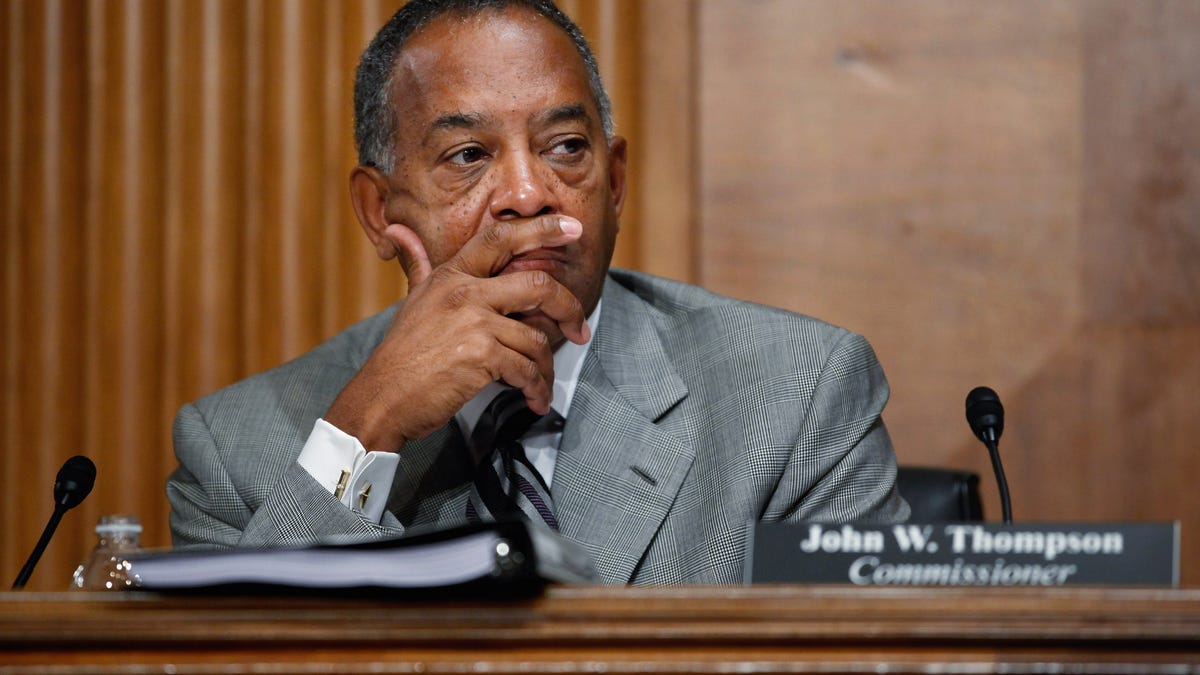Rumor redux: So why not John Thompson as Microsoft CEO?
After striking out with Plan A, there's a stronger-than-ever case for why Microsoft ought to go with Plan B.

In his latest comments on the company's nearly 7-month search to find a replacement for Steve Ballmer, Gates offered no evidence of a change of heart. Where does that leave Microsoft?
Plan A was to lure away Alan Mulally from Ford. That turned out to be a pipedream. For the time being he's staying put in Detroit. Plan A- would be to convince the company's legendary co-founder to give up his full-time job saving the world -- and I'm not being sarcastic here; Bill G is literally doing extraordinary service to better humanity -- but you can forget about that one as well. Reviewing Windows 8 tweaks with product managers doesn't compare with wiping out malaria in sub-Saharan Africa. The most that Microsoft might hope from Gates is some helpful kibbitzing as an increasingly active chairman.
Meanwhile, the guessing game continues. If you believe the executive recruiters, Microsoft's already into double overtime. If it can't come up with a selection by now, it's time to put Plan B into action.
Which is?
I'm hearing a scenario being bruited around the corridors in Redmond in which John Thompson steps back into the picture on an interim basis. Yes, we've been down this road before and it's led to a dead end with Thompson, who is leading the board's search committee, dismissing suggestions that he would want to run Microsoft. Maybe this is the latest rumor born of frustration but the longer the process lingers, the more attractive a Thompson candidacy looks.
"It's reached the point of absurdity," said one executive recruiter who has specialized in finding CEOs for high-tech companies. "They ought to have had a Ballmer replacement in the job by now and every day without an announcement feeds the impression that something's wrong."
Then again, it could be that Microsoft's just being picky. Perhaps too picky.
For the record, Microsoft's not commenting. Obviously.
So allow me to comment in its absence.
Thompson may not want to spend the next decade leading Microsoft against the Googles and Apples of the world. But who said that he needs to sign up for the duration? Even if he were to take over on an interim basis, that would unblock the current logjam and let Microsoft get back to focusing on its business. Thompson would provide the organizational "blocking and tackling" big company expertise that made Mulally such an attractive prospect. The board could still conduct a wide-ranging search for the next Microsoft CEO without public scrutiny or wiseacre tech columnists needling them about how to do their job. In his last public communication on the CEO search, Thompson wrote about the requirements of the position, describing it as "a complex role to fill, involving a complex business model and the ability to lead a highly technical organization and work with top technical talent."
Hmm. Maybe I missed something but -- well, let's see:
- Several years running major tech company as Symantec CEO
- Excellent cred with Wall Street
- A-plus skills as public communicator
Check, check and check.
Basically, we're talking about a modified Dick Cheney scenario. You might recall that Cheney led the search for a vice-presidential candidate to run with George W. Bush during the 2000 elections. After months vetting various and sundry candidates, Cheney reported back to Bush that, with all due modesty, he was the best equipped candidate. We know the rest of the story.
History can repeat. In the absence of a stunning about-face by Gates or a surprise announcement that the board's signed a superstar, the only question is why Microsoft's still hesitating.

